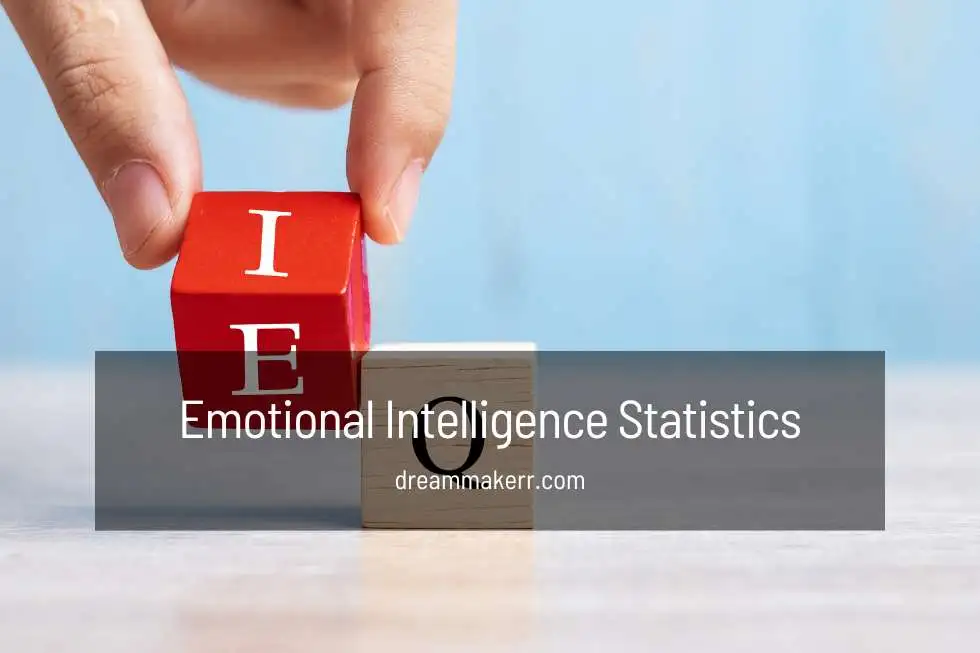On this page
Gratitude and Happiness: How They’re Connected
How do you know that gratitude and happiness are connected? You might be wondering if it’s just your imagination or does gratitude really lead to happiness? Discover how gratitude can bring about happiness in your life.
Gratitude isn’t just about saying thanks. It’s about appreciating the good things that happen in your life.
We often overlook the link between gratitude and happiness. Some mindset students claim that gratitude can make you happy, but is that a fact?
As we start a gratitude practice, we soon realize that gratitude does in fact make you happier (25% happier according to science). The main reason is because gratitude thinking focuses on being happy for what you have, not being jealous of others for things you don’t have.
In this article, we will make a detailed analysis of the connection between gratitude and happiness.
What Is Gratitude, Exactly?
Before we get to the actual question, let’s first look at the concept of what gratitude is.
Gratitude is when you feel thankful and happy for the good things that happened in your life. The feeling of gratitude may be directed towards people, moments, or things.
- It is being grateful for the blessings in life.
- It is an acknowledgement of the good things in life.
- It is showing appreciation for things in life.
You can express gratitude in many ways.
It can be as simple as a thanks or something greater. Some people also keep a gratitude journal. It is a notebook where they record all the good things that happened to them (discussed in detail below). Others may express gratitude by doing good deeds or by contributing to a cause they care about.
But why gratitude? Research has proven a lot of advantages to gratitude.
The benefits of gratitude are endless:
- It can result in a massive boost of emotions like happiness and joy.
- It can reduce stress, anxiety, and depression.
- It can strengthen relationships, not just romantic ones.
- It can help you manifest things into your life.
These are just a few of the benefits of gratitude. There endless things to be grateful for.
So what did you understand about gratitude? Let’s sum it up. Gratitude is an important factor in our lives. It enhances our mental and physical well-being. It makes us feel more positive, have better relationships, be happy, and it also helps us to manifest with ease.
Pretty good, eh? But what does science say about this?
The Science of Gratitude and Happiness
It is a well known fact that happiness is an important aspect of our lives.
Before we get into the science…let me ask you… do you know why?
The obvious answer is that expressing gratitude is one of the ways for reaching happiness. Because gratitude increases our happiness levels by releasing certain chemicals in the brain.
But that’s not all.
It goes much deeper than that.
It’s about the way atoms operate on a cellular level.
If you remember the Physics lessons in school, the atom nucleus consists of 3 parts: the positive, the negative and the neutral parts.
Now, the practice of gratitude is about redirecting your mind to the positive aspects of a relationship, situation or event.
When you refocus your mind on the positive aspects, you activate the components of positive attraction – in essence, you begin to attract positively.
These facts have been proven through research.
- According to Psychology Today, happiness involves embracing all emotions. Scientific analysis reinforces gratitude as being an amplifier for our well-being. In the end, being happy is a way of thinking that we can develop through our actions and habits.
- An article in Positive Psychology says that gratitude can help us sleep better and stay healthier. People who are thankful also live healthier lives in comparison.
One of the easiest ways of practicing gratitude is saying ‘Thanks’. You can also write a gratitude journal. Writing down things we are grateful for can make us feel happy. It can also help us improve our relationships with others.
In conclusion, Gratitude brings joy. Gratitude and happiness go hand in hand. By making gratitude a part of our everyday life, we can feel better. It can also have a positive impact on our health.
Interconnection of Gratitude and Happiness
Gratitude and happiness are linked. As mentioned earlier, research suggests that gratitude can make us happy. When we express gratitude, it results in a boost for our happiness.
Let us go over how gratitude and happiness are inter-connected in detail. We will go over the social and psychological perspectives of their connection.
Psychological Perspective
Here’s how gratitude can affect us psychologically:
When you express gratitude
- You feel more emotions.
- You have more energy and sleep better.
- You have stronger immune systems.
- You have better self-esteem.
- You have a positive outlook on life . See positive mindset statistics
All these aspects result in happiness, whether directly or indirectly.
Sociological Perspective
Here’s how gratitude can affect our social life::
- Gratitude also makes our social connections stronger.
- It inspires us to do good things. They can be for both people and society.
- This not only makes us feel good but also helps us fit in better within our communities [4].
- Expressing gratitude makes us feel supported.
When we know there are people who have our backs, it boosts our happiness. Feeling this support brings out positive emotions, making us happier. [5].
2 Easy Ways to Practice Gratitude
Here are two easy ways to express gratitude:
-
Maintain a Gratitude Journal
A simple way to express gratitude is by keeping a journal. Every day, write down things you appreciate, both big or small. Research shows that doing this boosts your confidence. It also makes you feel more positive and optimistic.
Here are a few simple steps you can follow:
- Find a blank diary, notebook or any piece of paper. You can also use your phone to do this.
- Set an alarm as a reminder. I suggest setting it before bedtime.
- Every night before bed, write down three good things that happened to you that day.
- Doesn’t matter, big or small. They can be anything, from a good cup of coffee to winning a lottery. Also write down a detailed description of the events.
- Place the journal in a safe spot where it is easier to access.
- Now whenever you want to feel happy, just open your journal and read a few lines.
-
Practice Mindfulness
According to Mindful.org gratitude enhances our well being. It also strengths our connections with others.
Another approach to gratitude is practicing mindfulness. This means being fully present and attentive in the moment. This technique will help you identify things around you that you can appreciate. By practicing mindfulness you become more attuned to the aspects of our lives.
Here’s a few steps you can follow:
- Find a quiet place, I suggest an empty room or some place close to nature.
- Get comfortable.
- Begin with breathing.
- Think about something you are grateful for. It can be a person or even an experience.
- Engage your senses. Think about the details of what you are grateful for. Feel it.
- Stay present. Completely immerse yourself in the feeling of gratitude.
Cultivating Happiness
According to Verywell Mind, the attitude of gratitude is key for staying happy.
Here we have listed easy techniques you can use to bring happiness into your lives:
Positive Psychology Techniques
Positive psychology techniques can also increase your happiness. They work by directing your attention towards your strengths and experiences. Some examples of positive psychology techniques are given below:
- Gratitude Journaling: Write down the positive things about your day. This will help you focus on the positive aspects, resulting in an increase in happiness.
- Meditation: Practice mindfulness meditation to stay present, reduce stress, and increase happiness.
- Random Acts of Kindness: Do something positive for other people. It will rekindle a sense of gratitude in your heart. You will start to feel more happy.
You can find in-depth guides on how to use these techniques here: How to use a gratitude journal.
Lifestyle Adjustments
Lifestyle adjustments can also increase your happiness. These adjustments involve making changes to one’s daily routine. Some lifestyle adjustments include:
- Spending time in nature: Spending time in nature can reduce stress and increase happiness levels. It helps you focus on the present, allowing you to appreciate the beauty of nature. This can also help calm you.
- Regular exercise: Regular exercise can also contribute to happiness and reduce stress. It helps you focus on your physical health and well-being. So try incorporating regular exercise into your daily routine.
- Social connections: Social connections play a vital role in increasing happiness. When you spend time with your family and friends, you learn to cultivate gratitude. You appreciate the positive relationships and cultivate gratitude by being thankful for them.
In summary, happiness requires consistency. By using these techniques, we can nurture a sense of gratitude in our lives. Which contributes to a more joyful and fulfilling life.
Case Studies on Gratitude and Happiness
A good number of studies have been conducted to understand gratitude and happiness. Here we have listed a few for you:
- O’Sullivan (2020) conducted a study on the effects of gratitude on happiness. One person was part of the study. He found out that gratitude had a significant impact on happiness and well-being.
- Nguyen and Gordon in 2019 conducted a study to understand the connection of gratitude and happiness. The study was conducted on children. They found out that expressing gratitude can make a child more thankful. This, in turn, makes them happier.
- Wood et al. (2010) conducted a study in which people were asked to write gratitude letters. They were asked to thank the person who had influenced their life the most. They found out that the participants had experienced a boost in happiness. Participants also had reduced signs of depression for one month after the study.
- In 2003, Emmons and McCullough conducted a study. They asked participants to maintain a gratitude journal. He found out that those who kept a journal experienced increased happiness. They were also more optimistic towards life.
There are a lot of studies out there that we have not mentioned and they all point to the same conclusion. Gratitude can result in happiness. It can make our lives better along with our well being. It can also make us more optimistic towards life.
Conclusion
Gratitude and happiness are interconnected. Studies have proven that gratitude leads to happiness.
Gratitude is beneficial for both our mind and body. It improves relationships, reduces stress and helps us sleep better. It is a medicine for our well being. It lets us focus on the positive aspects of life. It makes us more resilient while preparing us for the challenges. These factors play a vital role in maintaining a happy life.
The easiest way of expressing gratitude is saying “Thanks”. Another effective method is maintaining a gratitude journal. By appreciating the good things we can become more optimistic towards life.
Making gratitude a part of your life can result in a massive boost in happiness. It results in physical and mental well being.
While the opposite is also true. Being ungrateful for the things in your life can cause havoc in your results.
Frequently Asked Questions
What are some benefits of expressing gratitude?
Expressing gratitude helps both our body and mind. It has physical and mental benefits.
- Gratitude lets us focus on the positive aspects of life. When we do this, we become more optimistic towards life.
- Gratitude can improve relationships. When we express gratitude towards our loved ones, we appreciate their existence. It lets us acknowledge their importance.
- Gratitude reduces stress and anxiety. It can reduce the symptoms of depression by making you more optimistic towards life.
All these factors contribute to your happiness.
How does gratitude impact mental health?
Gratitude provides a boost to our mental health.
- It boosts self esteem and enhances our resilience.
- It reduces signs of depression.
- It reduces stress and anxiety.
- It makes us more optimistic and positive.
- It increases happiness, reducing emotions like envy and resentment.
What is the connection between joy and gratitude?
Joy and gratitude interconnect. Gratitude brings joy and happiness. Experiencing joy makes it easier for us to feel grateful. Both joy and gratitude contribute to a sense of well being.
Is happiness linked to gratitude?
Studies have indicated a connection between happiness and gratitude.
When we express gratitude, we experience happiness and satisfaction in our lives. Moreover expressing gratitude can enhance emotions contributing to long term happiness.
How can kindness and gratitude contribute to happiness?
Kindness and gratitude play roles in experiencing happiness. When we engage in acts of kindness, it boosts emotions. It also strengthens our social connections. Expressing gratitude helps us feel more joyful and content. By incorporating these practices into our lives we can enhance our well being. Achieve greater happiness.
What does research say about the relationship between gratitude and happiness?
According to happiness statistics the connection between gratitude and happiness is apparent.
People who express gratitude are more satisfied with their lives. They are more optimistic and positive towards life. Moreover, gratitude is beneficial to our well being. It can also help us build strong relationships.
All these contribute to happiness.

Petri Maatta is a mindset coach and neuroscience-focused author with 15 years of experience in personal transformation and success psychology. After seven years of business failures, he discovered the power of manifestation through a Fortune 500 mentor. Now, he shares neuroscience-backed strategies through DreamMaker membership, helping others transform their businesses and lives on their own terms.
Read My Story here.
Share This Story, Choose Your Platform!
You want to manifest a new car, but you’re wondering: Does this really work? Here’s
Many smart individuals are often linked with having a high IQ. However, according to emotional
According to online dating statistics over 90% of people believe in love at first sight,




